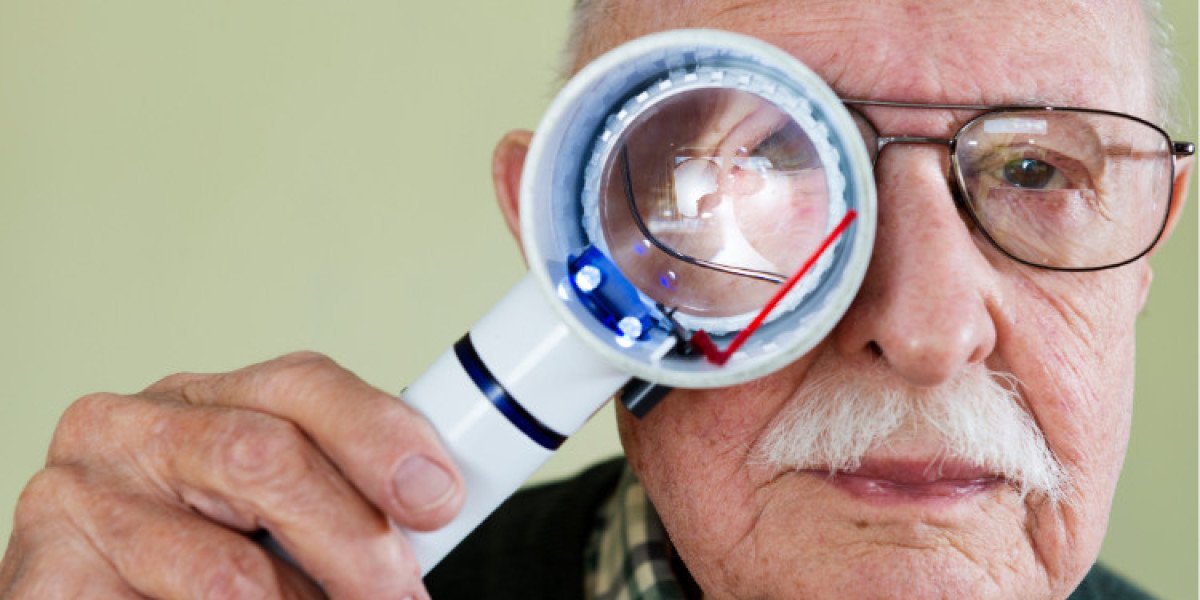Age-Related Macular Degeneration Market Analysis
The global age-related macular degeneration (AMD) market is projected to reach USD 19.53 billion by 2032, up from USD 10.68 billion in 2023, with a compound annual growth rate (CAGR) of 6.94% from 2024 to 2032. The market's expansion is driven by an aging population susceptible to macular cell damage due to changes in retinal structure and blood flow. Additional factors contributing to this growth include genetic predisposition, high blood pressure, smoking, prolonged exposure to blue light from devices, poor diet, and obesity.
Age-Related Macular Degeneration Market Table of Content and Sample Download: https://www.renub.com/age-related-macular-degeneration-market-p.php
Market Outlook
AMD is a degenerative disease that affects the macula, a small part of the retina responsible for central vision, which is crucial for tasks requiring detailed focus such as reading and driving. It is a leading cause of blindness among individuals aged 50 and older. There are two primary types of AMD: dry AMD, caused by the degeneration of light-sensitive cells in the macula, and wet AMD, which results from abnormal blood vessel growth that leaks into the retina.
Treatment Approaches
The primary goals of AMD treatment are to manage symptoms and slow disease progression. For dry AMD, treatments include vitamins like vitamin C, vitamin E, zinc, copper, and antioxidants, which can help slow vision loss in some cases. Wet AMD is typically treated with intravitreal injections of anti-vascular endothelial growth factor (VEGF) agents, which prevent abnormal blood vessel formation and help maintain vision. Ongoing research is focused on finding additional treatments, improving diagnostic approaches, and enhancing the quality of life for AMD patients.
Growth Factors of the Age-Related Macular Degeneration Market
Aging Population Dynamics
The increasing incidence of AMD is primarily due to the growing aging population, especially in developed regions like Europe and North America. AMD is more common in individuals over 50, making age a significant risk factor. This demographic trend heightens the need for diagnostic tools, treatments, and supportive care to effectively manage and treat AMD-related vision loss. Healthcare systems are evolving to meet the needs of this patient demographic, contributing to market growth through improved diagnosis and treatment strategies.
Advancements in Treatment Options
Significant improvements in AMD patient management have positively impacted patient outcomes. The development of anti-VEGF agents like ranibizumab and aflibercept has revolutionized wet AMD treatment by controlling new blood vessel growth. These therapies help stabilize vision and, in some cases, improve it, enhancing patients' quality of life. The introduction of new drug delivery methods and combination therapies continues to drive research and market expansion.
Technological Innovations in Diagnostic Tools
Advances in ocular imaging technologies, such as optical coherence tomography (OCT) and fundus autofluorescence (FAF), facilitate early AMD diagnosis. Early detection allows for timely treatment and better patient outcomes. Integrating these advanced imaging techniques into healthcare systems enhances the accuracy of AMD diagnosis and supports personalized care delivery, thereby driving market growth.
Increasing Awareness and Healthcare Infrastructure
Raising public awareness about AMD symptoms, causes, and treatment options is crucial for initiating preventive measures. Investments in healthcare infrastructure, particularly in regions experiencing demographic shifts, improve access to AMD care. Enhanced healthcare infrastructure leads to timely health check-ups, better health awareness, appropriate patient management, and reduced incidences of vision loss, contributing to market growth.
Europe Age-Related Macular Degeneration Market
The European AMD market is expected to experience steady growth due to several factors. The market is well-established in countries like Germany, the UK, and Italy, where elderly populations are more likely to be affected by AMD. Advancements in healthcare facilities and increasing patient awareness about eye diseases drive the demand for diagnostics and therapies. Innovations in new therapies, particularly for wet AMD, support market growth by providing effective treatment options that preserve patients' eyesight. Government policies promoting research and development in ophthalmic treatments further stimulate market growth. As the incidence of AMD rises due to aging populations and other factors, the European market for AMD treatment is expected to expand, presenting opportunities for biopharmaceutical companies to meet patient needs.
Age-Related Macular Degeneration Company Overview
Leading companies in the global AMD market include F. Hoffmann-La Roche Ltd., Bayer AG, Abbvie, GSK Plc, Novartis AG, Regeneron Pharmaceuticals, Bausch Health Companies Inc., and Alimera Sciences Inc.
Age-Related Macular Degeneration News
March 2024: Sumitomo Corporation and Roche Pharma India signed a commercial alliance agreement for Vabysmo (faricimab), a new drug for treating diabetic macular edema (DME) and neovascular or "wet" AMD. This marks Roche Pharma India's entry into the ophthalmology market. Vabysmo targets two disease processes associated with retinal disorders that can impair vision.
August 2024: Astellas' IZERVAYTM received FDA approval for treating geographic atrophy (GA) secondary to AMD. In Phase III studies, IZERVAY demonstrated a statistically significant reduction in GA progression compared to other approved therapies.
Relate Reports
Specialty Pharmaceuticals Market: https://www.renub.com/specialty-pharmaceutical-market-p.php
United States Specialty Pharmaceuticals Market: https://www.renub.com/united-states-specialty-pharmaceuticals-market-p.php
CAR T Cell Therapy Market: https://www.renub.com/car-t-cell-therapy-market-p.php
Chronic Obstructive Pulmonary Disease (COPD) Market: https://www.renub.com/chronic-obstructive-pulmonary-disease-market-p.php
Mode of Transportation – Market breakup in 4 viewpoints:
1. Refrigerated Road Transport
2. Refrigerated Sea Transport
3. Refrigerated Rail Transport
4. Refrigerated Air Transport
Technology – Market breakup in 4 viewpoints:
1. Vapor Compression Systems
2. Air-Blown Evaporators
3. Eutectic Devices
4. Cryogenic Systems
Temperature – Market breakup in 2 viewpoints:
1. Single Temperature
2. Multi-Temperature
Application – Market breakup in 3 viewpoints:
1. Chilled Food Products
2. Frozen Food Products
3. Others
Country – Market breakup in 25 viewpoints:
North America
o United States
o Canada
Europe
o France
o Germany
o Italy
o Spain
o United Kingdom
o Belgium
o the Netherlands
o Turkey
Asia Pacific
o China
o Japan
o India
o Australia
o South Korea
o Thailand
o Malaysia
o Indonesia
o New Zealand
Latin America
o Brazil
o Mexico
o Argentina
Middle East & Africa
o South Africa
o Saudi Arabia
o United Arab Emirates
All the Key players have been covered from 4 Viewpoints:
1. Overview
2. Recent Development & Strategies
3. Product Portfolio
4. Financial Insights
Company Analysis:
1. F. Hoffmann - La Roche Ltd.
2. Bayer AG
3. Abbvie
4. GSK Plc
5. Novartis AG
6. Regeneron Pharmaceuticals
7. Bausch Health Companies Inc.
 AdBlock Detectado
AdBlock Detectado








